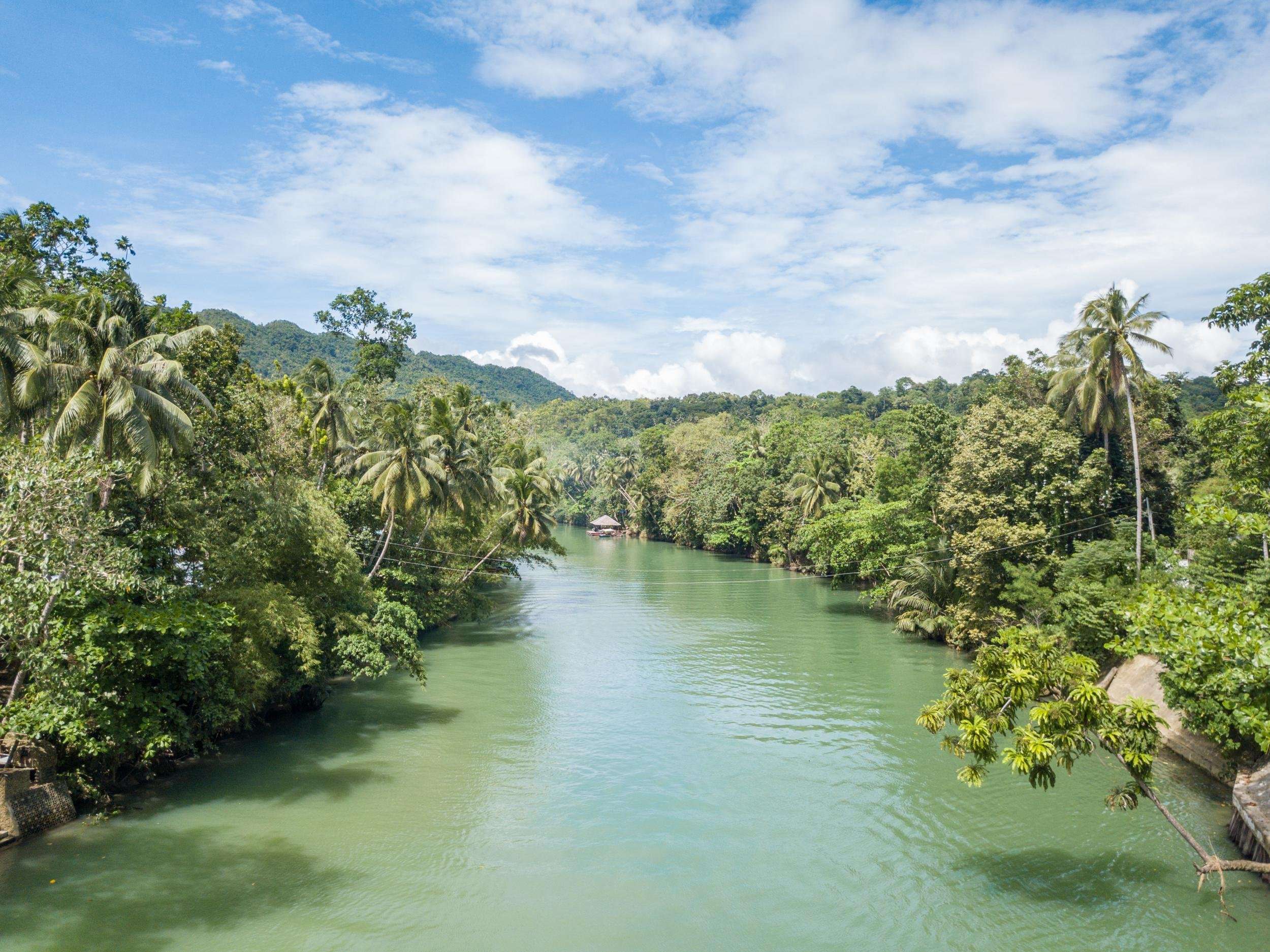A new Filipino law requires all graduating high school and college students to plant at least 10 trees each before they can graduate.
The law formalises a tradition of planting trees upon graduation, which is also hoped to simultaneously combat global climate change.
The proponents of the law say the legislation could result in as many as 525 billion trees planted in a generation if it is properly adhered to.
We’ll tell you what’s true. You can form your own view. From 15p €0.18 $0.18 USD 0.27 a day, more exclusives, analysis and extras.
The Philippines’ Magdalo Party representative Gary Alejano, who was the principal author of the legislation, said: "With over 12 million students graduating from elementary and nearly five million students graduating from high school and almost 500,000 graduating from college each year, this initiative, if properly implemented, will ensure that at least 175 million new trees would be planted each year.
“In the course of one generation, no less than 525 billion can be planted under this initiative,” Mr Alejano said in the bill's explanatory note.
Shape Created with Sketch. Goats in trees Show all 10 left Created with Sketch. right Created with Sketch. Shape Created with Sketch. Goats in trees 1/10 Moroccan goats in an argan tree AFP/Getty 2/10 Moroccan goats grazing in argan tree AFP/Getty 3/10 Moroccan goats grazing in argan tree Getty 4/10 Moroccan goats climbing an argan tree to feed AFP/Getty 5/10 A Moroccan goat in argan tree AFP/Getty 6/10 Moroccan goats grazing in argan tree Getty 7/10 Moroccan goats grazing in argan tree AFP/Getty 8/10 Moroccan goats grazing at an argan tree AFP/Getty 9/10 A kid perched in an argan tree Getty 10/10 Moroccan goats grazing in argan tree AFP/Getty 1/10 Moroccan goats in an argan tree AFP/Getty 2/10 Moroccan goats grazing in argan tree AFP/Getty 3/10 Moroccan goats grazing in argan tree Getty 4/10 Moroccan goats climbing an argan tree to feed AFP/Getty 5/10 A Moroccan goat in argan tree AFP/Getty 6/10 Moroccan goats grazing in argan tree Getty 7/10 Moroccan goats grazing in argan tree AFP/Getty 8/10 Moroccan goats grazing at an argan tree AFP/Getty 9/10 A kid perched in an argan tree Getty 10/10 Moroccan goats grazing in argan tree AFP/Getty
“Even with a survival rate of only 10 per cent, this would mean an additional 525 million trees would be available for the youth to enjoy, when they assume the mantle of leadership in the future.”
The trees will apparently be planted in mangroves, existing forests, some protected areas, military ranges, abandoned mining sites and selected urban areas, according to CNN's Philippines news service.
The government said the species selected for planting must be appropriate to each location, climate and topography of the area and there will also be a preference for indigenous species.
In addition to the immediate carbon-absorbing impact of the trees, it is hoped the legislation will help bring environmental understanding to future generations and lead to further ecological initiatives.
The country's Department of Education and the Commission on Higher Education will together implement and ensure compliance with the bill.
The Philippines is one of the world’s most severely deforested countries with total forest cover dropping from 70 per cent to just 20 per cent during the 20th century. Illegal logging remains a problem for the country and the lack of trees in some areas has exacerbated the risk and the impacts of floods and landslides.

arkuiris on May 28th, 2019 at 13:22 UTC »
The article is a bit misleading...
It insinuates that a law has already been passed, when in reality it is still under the legislative approval process.
It has been approved in one of the chambers of PH Congress, the House of Representatives, but it still needs to be drafted and approved as a senate bill (which doesn't exist as of the moment), be signed by the President, etc etc.
Just thought I'd share this since as a Filipino student myself it seemed a bit strange never hearing of the "law" myself...
Teftell on May 28th, 2019 at 10:24 UTC »
Is education free there?
globalwankers on May 28th, 2019 at 09:55 UTC »
I thought the students would just plant 10 trees in their backyard to cheat out of the program. Turns out I was wrong lol.